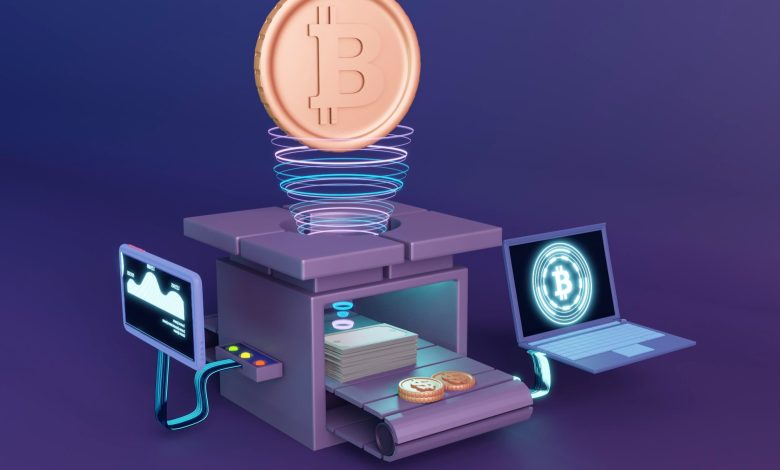Decentralized Finance (DeFi): Innovations on the Blockchain

- Understanding Decentralized Finance (DeFi)
- The Rise of DeFi: A Game Changer in the Financial Industry
- Exploring the Benefits of DeFi Applications
- Challenges and Risks in the World of Decentralized Finance
- The Role of Smart Contracts in DeFi Platforms
- Regulatory Considerations for Decentralized Finance (DeFi)
Understanding Decentralized Finance (DeFi)
Decentralized Finance (DeFi) is a revolutionary concept that leverages blockchain technology to provide financial services without the need for traditional intermediaries like banks or brokers. In DeFi, individuals can access a wide range of financial products and services directly from decentralized applications (dApps) built on blockchain platforms.
One of the key principles of DeFi is the concept of decentralization, which means that there is no central authority controlling the financial ecosystem. Instead, transactions are executed through smart contracts, which are self-executing contracts with the terms of the agreement directly written into code. This eliminates the need for trust in a third party and ensures transparency and security in transactions.
Some of the most popular DeFi applications include decentralized exchanges (DEXs), lending platforms, and yield farming protocols. DEXs allow users to trade cryptocurrencies directly with one another without the need for a centralized exchange. Lending platforms enable users to borrow and lend digital assets, earning interest on their holdings. Yield farming protocols incentivize users to provide liquidity to decentralized platforms in exchange for rewards.
Overall, DeFi is reshaping the financial landscape by democratizing access to financial services and creating new opportunities for innovation and growth. As the DeFi ecosystem continues to evolve, it is important for users to understand the risks and benefits associated with these decentralized platforms to make informed decisions about their financial activities.
The Rise of DeFi: A Game Changer in the Financial Industry
Decentralized Finance (DeFi) has been making waves in the financial industry, revolutionizing the way we think about traditional banking and investing. DeFi is a game changer that leverages blockchain technology to provide financial services without the need for intermediaries like banks or brokers. This shift towards decentralized systems has opened up a world of possibilities for individuals to have more control over their finances and access to a wider range of financial products.
One of the key advantages of DeFi is its ability to offer greater transparency and security compared to traditional financial systems. By utilizing smart contracts on the blockchain, DeFi platforms can automate processes and eliminate the need for trust in third parties. This not only reduces the risk of fraud but also lowers transaction costs and speeds up the process of executing financial transactions.
Furthermore, DeFi allows for greater financial inclusion by providing access to financial services for individuals who are underserved or excluded from the traditional banking system. This can have a significant impact on reducing inequality and empowering people to take control of their financial futures.
Exploring the Benefits of DeFi Applications
Decentralized Finance (DeFi) applications offer a wide range of benefits to users looking to take advantage of blockchain technology. These applications provide a more secure and transparent way to access financial services without the need for traditional intermediaries. By leveraging smart contracts on the blockchain, DeFi applications enable users to interact directly with each other in a peer-to-peer manner.
One of the key benefits of DeFi applications is the ability to earn passive income through various decentralized finance protocols. Users can participate in liquidity pools, yield farming, staking, and lending to generate returns on their cryptocurrency holdings. This passive income can provide a steady stream of revenue without the need for active trading or investing.
Another advantage of DeFi applications is the accessibility they offer to a global audience. Anyone with an internet connection can access these decentralized financial services, regardless of their location or background. This inclusivity opens up new opportunities for individuals who may not have had access to traditional banking services.
Furthermore, DeFi applications provide greater control and ownership of assets to users. By using non-custodial wallets, individuals retain full control over their funds and can transact directly on the blockchain without relying on third parties. This autonomy reduces the risk of funds being frozen or seized by external entities.
In conclusion, exploring the benefits of DeFi applications can lead to a deeper understanding of the potential of decentralized finance to revolutionize the traditional financial system. By embracing these innovative technologies, users can experience increased financial freedom, security, and accessibility in their interactions with the global economy.
Challenges and Risks in the World of Decentralized Finance
As with any emerging technology, decentralized finance (DeFi) comes with its own set of challenges and risks that users need to be aware of. While DeFi offers numerous benefits such as increased financial inclusion and transparency, there are also potential pitfalls that need to be considered.
- Smart contract risk: One of the main risks in DeFi is the vulnerability of smart contracts to bugs and exploits. Since DeFi platforms are built on blockchain technology, any vulnerabilities in the code can be exploited by malicious actors to steal funds.
- Regulatory uncertainty: Another challenge facing DeFi is the lack of regulatory clarity. As DeFi operates outside of traditional financial systems, there is uncertainty around how regulators will approach this new technology, which could lead to legal challenges in the future.
- Market volatility: DeFi platforms are often subject to high levels of market volatility, which can result in significant losses for users. Price fluctuations in cryptocurrencies can impact the value of assets held in DeFi platforms, leading to financial risks for users.
- Liquidity risks: DeFi platforms rely on liquidity to function effectively. If there is a lack of liquidity in the market, users may face challenges in executing trades or accessing their funds, which can result in financial losses.
- Security risks: Since DeFi platforms are decentralized and operate on a peer-to-peer basis, there is a risk of security breaches and hacks. Users need to take precautions to secure their assets and ensure the safety of their funds.
Despite these challenges and risks, the DeFi space continues to grow and evolve, with new innovations and solutions being developed to address these issues. By staying informed and taking appropriate precautions, users can navigate the world of decentralized finance safely and effectively.
The Role of Smart Contracts in DeFi Platforms
Smart contracts play a crucial role in the operation of decentralized finance (DeFi) platforms. These self-executing contracts are written in code and automatically enforce the terms of an agreement when certain conditions are met. In the context of DeFi, smart contracts eliminate the need for intermediaries, such as banks or lawyers, by directly connecting users and executing transactions based on predefined rules.
One of the key advantages of smart contracts in DeFi platforms is their ability to provide transparency and security. Since smart contracts are deployed on the blockchain, all transactions and agreements are recorded and cannot be altered. This immutable nature of the blockchain ensures that all parties involved in a transaction can trust the outcome, reducing the risk of fraud or manipulation.
Moreover, smart contracts enable the automation of various financial processes, such as lending, borrowing, trading, and asset management. By removing the need for manual intervention, smart contracts can streamline operations, reduce costs, and increase the efficiency of DeFi platforms. Users can interact with these contracts directly through decentralized applications (dApps), without relying on centralized authorities.
Regulatory Considerations for Decentralized Finance (DeFi)
When it comes to Regulatory Considerations for Decentralized Finance (DeFi), it is essential to understand the evolving landscape of regulations surrounding this innovative technology. As DeFi continues to gain traction in the financial industry, regulators are starting to take notice and explore how to best oversee and govern these decentralized platforms.
One of the key challenges facing DeFi is the lack of clear regulatory frameworks. This ambiguity can create uncertainty for both users and developers in the space. Regulators are grappling with how to apply existing financial regulations to DeFi, which operates in a decentralized and permissionless manner.
Some of the main regulatory considerations for DeFi include:
- Know Your Customer (KYC) and Anti-Money Laundering (AML) Compliance: Regulators are concerned about the potential for DeFi platforms to be used for illicit activities such as money laundering. Implementing KYC and AML measures could help address these concerns.
- Smart Contract Audits: Ensuring the security and reliability of smart contracts is crucial in DeFi. Regulators may require audits to mitigate the risk of vulnerabilities and exploits.
- Consumer Protection: Protecting users from fraud, scams, and other risks is a priority for regulators. Establishing mechanisms for recourse and dispute resolution could help enhance consumer protection in DeFi.
- Market Manipulation: Preventing market manipulation and ensuring fair trading practices are important considerations for regulators. Monitoring trading activities and enforcing rules against manipulation may be necessary.
Overall, navigating the regulatory landscape for DeFi requires collaboration between industry participants, regulators, and policymakers. Finding a balance between fostering innovation and ensuring compliance with regulations is crucial for the long-term success and sustainability of decentralized finance.



